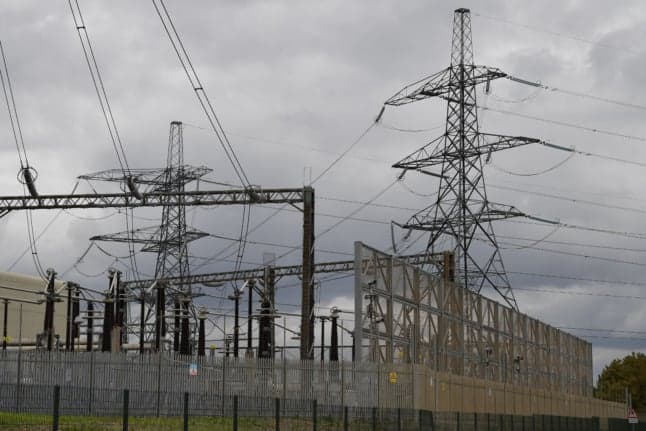Norway to provide renewable power to UK through underwater cable

Britain on Friday powered up the world's longest subsea electricity cable with Norway in order to share hydro and wind power, amid ongoing turmoil in the UK energy market.
National Grid, which distributes energy to UK homes and businesses, said the 1.6-billion-euro North Sea Link will start commercial operations on Friday.
"The UK and Norway are now able to share renewable energy for the first time," the company added in a statement.
This marked a "major milestone" in Britain's target to reach net zero carbon emissions.
The cable's maximum capacity will initially stand at 700 megawatts, but will be increased to 1,400 MW over three months.
NSL will eventually provide enough clean electricity to power 1.4 million homes.
The 720-kilometre-long NSL is a joint venture with Norwegian power grid operator Statnett.
The cable links Blyth in northeast England with Kvilldal in southwestern Norway.
All but four kilometres of the cable are underwater.
"When wind generation is high and electricity demand low in Britain, NSL will enable renewable power to be exported from the UK, conserving water in Norway's reservoirs," National Grid added in the statement.
"When demand is high in Britain and there is low wind generation, hydro power can be imported from Norway, helping to ensure secure, affordable and sustainable electricity supplies for UK consumers."
Britain, which will host the COP26 United Nations climate summit in Glasgow in November, aims to reduce its carbon emissions to net zero by 2050.
Friday's news comes as the British domestic energy sector buckles under record high natural gas prices.
That has sparked fears of rocketing household energy bills during the upcoming peak-demand northern hemisphere winter.
Almost 2.0 million UK consumers have seen their domestic energy suppliers go bust in recent weeks as a result of the spiking cost of gas.
Britain is particularly exposed to Europe's ongoing energy crisis because of its reliance on natural gas to generate electricity.
READ ALSO: Could Norway be forced to ration electricity, and what would that mean for you?
Comments
See Also
National Grid, which distributes energy to UK homes and businesses, said the 1.6-billion-euro North Sea Link will start commercial operations on Friday.
"The UK and Norway are now able to share renewable energy for the first time," the company added in a statement.
This marked a "major milestone" in Britain's target to reach net zero carbon emissions.
The cable's maximum capacity will initially stand at 700 megawatts, but will be increased to 1,400 MW over three months.
NSL will eventually provide enough clean electricity to power 1.4 million homes.
The 720-kilometre-long NSL is a joint venture with Norwegian power grid operator Statnett.
The cable links Blyth in northeast England with Kvilldal in southwestern Norway.
All but four kilometres of the cable are underwater.
"When wind generation is high and electricity demand low in Britain, NSL will enable renewable power to be exported from the UK, conserving water in Norway's reservoirs," National Grid added in the statement.
"When demand is high in Britain and there is low wind generation, hydro power can be imported from Norway, helping to ensure secure, affordable and sustainable electricity supplies for UK consumers."
Britain, which will host the COP26 United Nations climate summit in Glasgow in November, aims to reduce its carbon emissions to net zero by 2050.
Friday's news comes as the British domestic energy sector buckles under record high natural gas prices.
That has sparked fears of rocketing household energy bills during the upcoming peak-demand northern hemisphere winter.
Almost 2.0 million UK consumers have seen their domestic energy suppliers go bust in recent weeks as a result of the spiking cost of gas.
Britain is particularly exposed to Europe's ongoing energy crisis because of its reliance on natural gas to generate electricity.
READ ALSO: Could Norway be forced to ration electricity, and what would that mean for you?
Join the conversation in our comments section below. Share your own views and experience and if you have a question or suggestion for our journalists then email us at [email protected].
Please keep comments civil, constructive and on topic – and make sure to read our terms of use before getting involved.
Please log in here to leave a comment.